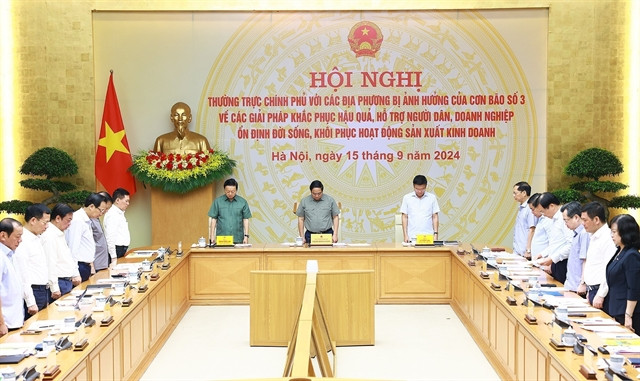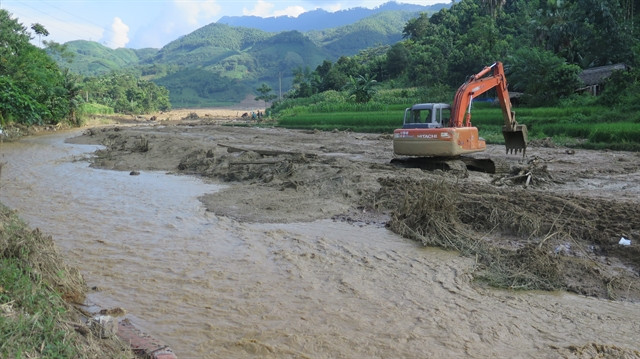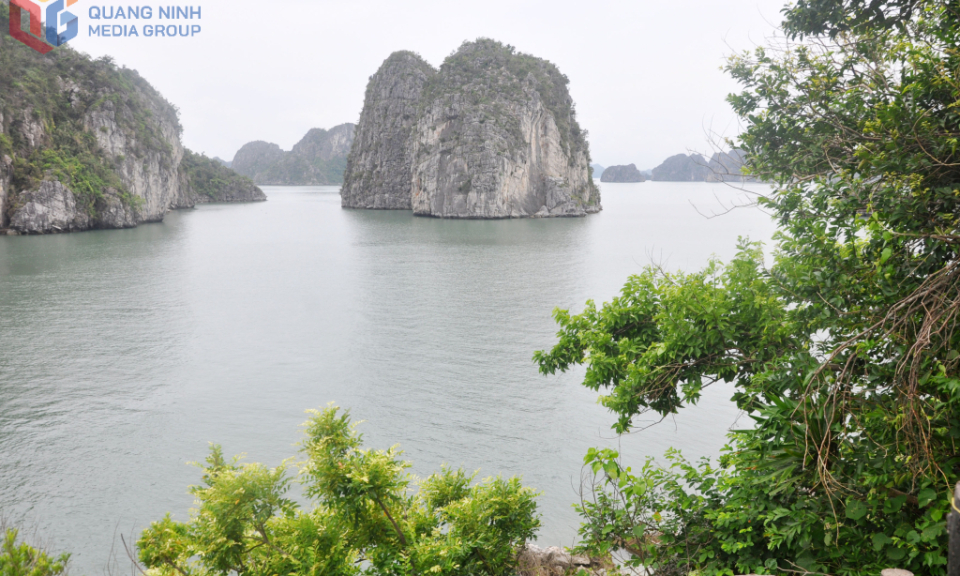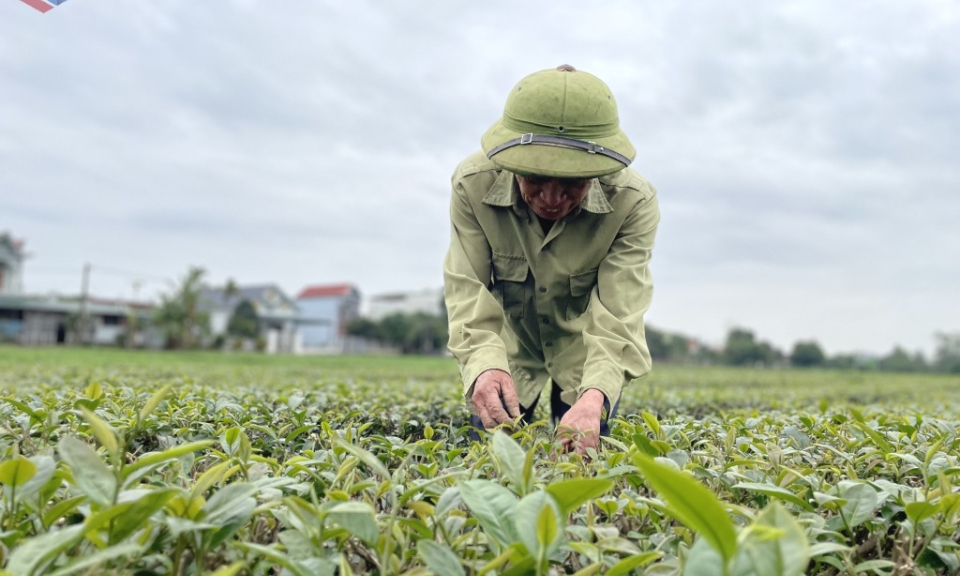Six major tasks to address aftermath of historic typhoon: Gov't leader
Initial assessment is that the typhoon caused VNĐ40 trillion (US$1.629 billion) worth of damage, according to Minister of Planning and Investment Nguyễn Chí Dũng, with many localities and the country set to be seeing slower growth in the last half.
Prime Minister Phạm Minh Chính on Sunday presided over a conference focused on measures to urgently address the aftermath of super Typhoon Yagi, swiftly stabilising people's situation, restoring production and business activities and promoting growth.
PM Chính described Typhoon Yagi as a historic typhoon, with extreme intensity with winds up to 209km/h bringing widespread devastation.
The typhoon impacted multiple sectors (people, property, crops, livestock, and socio-economic infrastructure) and caused prolonged destruction on land, resulting in catastrophic landslides, flash floods and immense damage to people and property.
The storm negatively affected production, business activities, livelihoods and particularly the people's mental well-being.
PM Chính choked up and couldn't hold back tears several times when discussing the severe destruction and huge loss of human life.
Forecasting the path of the typhoon was correct, he said, however the scale of the devastation of the resulting storm was not.
To date, over 350 people have died or gone missing, more than 2,000 were injured and 230,000 homes, offices, schools, and health centres were damaged.
Almost 70,000 homes were flooded, and over 190,000ha of rice, 48,000ha of crops and 31,000ha of fruit trees were destroyed.
Over 3,000 aquaculture cages were damaged or washed away and more than 21,000 livestock and 2.6 million poultry died.
Infrastructure in many areas was ruined and landslides and local flooding disrupted transportation in nearly all affected localities.
Initial assessment of damage from the typhoon reached VNĐ40 trillion (US$1.629 billion), according to Minister of Planning and Investment Nguyễn Chí Dũng, with many localities and the country set to be seeing slower growth in the last half of the year.
PM Chính conveyed the Politburo's, the Secretariat's, General Secretary and President Tô Lâm's and the Party and State leaders' condolences and support to the agencies, localities, and especially the families who lost members or were affected by typhoon.
PM Chính instructed the Ministry of Planning and Investment to collaborate with the Government Office to gather opinions from ministers and chairmen of the provincial people’s committees to propose a government resolution on addressing the aftermath of super typhoon.
He stressed that the resolution must be presented by on September 16 to ensure timely implementation by the relevant authorities.
Robust response
The leadership in response and recovery was thorough, decisive and systematic under the guidance of the Party, management by the State, and the concerted efforts of the political system, businesses, international partners and the public.
On September 9, two days after the typhoon made landfall in northern Việt Nam, the Politburo issued a conclusion and top leader Tô Lâm, along with other Party and State leaders, provided timely direction and visited the affected areas in the following days.
The Government has held meetings, both in person and virtually and leaders have been on the ground in localities.
PM Chính has himself issued nine emergency directives to respond to sudden situations such as flash floods, landslides, collapsed bridges, and breached dykes or dams.
The Government has provided more than VNĐ350 billion ($14.26 million) and 300 tonnes of rice to the affected areas, with more support expected.
The Việt Nam Fatherland Front has launched a fundraising campaign that has already raised over VNĐ1 trillion ($40.74 million).
Analysing the reasons for the extensive damage, PM Chính noted that while there were objective factors, some residents did not fully comply with official instructions and warnings and in some cases, local leadership was not decisive enough. Equipment for disaster response and rescue operations also fell short.
The Government underscored several key lessons from this typhoon: accurate forecasting, timely communication and swift, effective decision-making.
"We have tried our best. We've sought the best solutions available in these circumstances, but no loss can compensate for the lives lost and the suffering of the people," the PM said.
Looking ahead, the PM Chính said that no citizen should go hungry or lack essentials, and efforts must focus on effectively addressing the aftermath.

Six major tasks
The Prime Minister outlined six major task groups to address the typhoon aftermath and promote growth in the remaining time of the year to secure 7 per cent GDP growth.
First, it's searching for missing persons, treating the injured and providing temporary shelter for those who have lost their homes. Food, clean water and basic services must be supplied to affected areas in time.
Second, he stressed stabilisation of the affected populations, including assessment and compensation for damages, helping people settle in safe temporary shelters as well as completing resettlement buildings before December 31, 2024. Repairs of schools and facilities must be done swiftly to ensure that children can return for studies by the end of September, with tuition fee reduced for those who have been affected.
PM Chính also demanded measures to promote business and production recovery, policies for credit support, insurance payments, supply chains, seeds, fertiliser and industrial and service recovery.
Fourth, measures would need to be imposed to promote growth and control inflation, with a focus on public investment, national programmes and controlling costs to avoid market manipulation and jacked-up price following disasters.
He then said solutions need to be proposed to maintain political and social stability and finally, the country needed to enhance international cooperation, while promoting self-reliance while calling for community solidarity.
The Prime Minister affirmed that these goals are both urgent and long-term priorities and that efforts to implement them should begin immediately.






